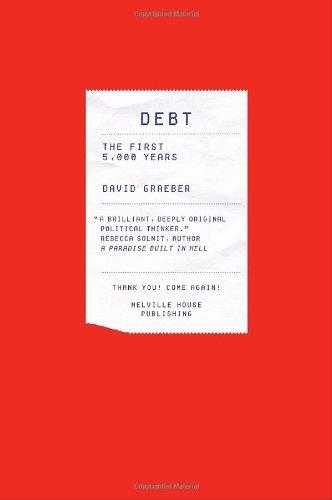(Add categories and links) |
|||
| Line 11: | Line 11: | ||
# On The Experience of Moral Confusion [[576]] | # On The Experience of Moral Confusion [[576]] | ||
# The Myth of Barter [[577]] | # The Myth of Barter [[577]] | ||
| − | # Primordial Debts | + | # Primordial Debts [[578]], [[579]] |
# Cruelty and Redemption | # Cruelty and Redemption | ||
# A Brief Treatise on the Moral Grounds of Economic Relations | # A Brief Treatise on the Moral Grounds of Economic Relations | ||
| Line 23: | Line 23: | ||
# (1971- The Beginning of Something Yet to Be Determined) | # (1971- The Beginning of Something Yet to Be Determined) | ||
}} | }} | ||
| + | [[category:debt]] | ||
| + | [[category:History Of Money]] | ||
Revision as of 21:09, 22 November 2011
Debt, The First 5000 Years, by David Graeber (2011)
Read by Robin Upton in episode 576. List of Episodes
David Graeber takes an anthropologist's view of money and debt, looking at evidence outside the purview of economists such as vedic texts, and anthropologists accounts. This book is a slaughterhouse of economists' sacred cows. He shows, for example, that not only has there never been any evidence that money evolved from barter, but that for over a century, there has abeen a lot of evidence that it didn't. Disregarding such conventional wisdoms, he describes a very different picture of the world's economic history, one in which money and debt are not an impartial, amoral facts of ecvonomic life, but go hand in hand with state sponsored imperial violence. Indeed, he suggests we think hard about the very idea of considering 'the economy' to be separate from other facets of life.
# Contents:
|
